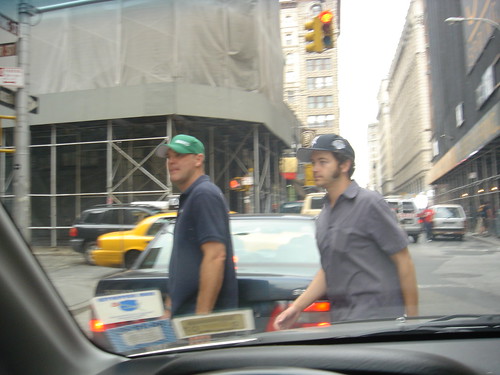Danny Masterson Sentenced to 30 Years to Life for Raping Two Women
Danny Masterson #DannyMasterson

Danny Masterson was sentenced on Thursday to 30 years to life in prison for the rapes of two women in 2003, after a trial that drew widespread attention due to allegations that the Church of Scientology dissuaded his accusers from reporting the sexual assaults.
Los Angeles Superior Court Judge Charlaine F. Olmedo handed down the sentence after denying a motion from Masterson, known for his role on That ’70s Show, for a new trial and hearing statements from accusers of how his actions impacted their lives.
The decision caps one of the most high-profile cases of the #MeToo movement and marks one of the few instances a major figure in Hollywood will serve time behind bars for sex crimes that occurred a significant period of time before a criminal case was filed over the allegations. Masterson was charged in June 2020 following a three-year investigation that was initiated when three women came forward with accusations around the same time Harvey Weinstein was publicly accused of sexually assaulting multiple women.
Shawn Holley, a lawyer representing Masterson, said the actor will appeal the conviction, pointing to a “number of significant evidentiary and constitutional issues.”
Reinhold Mueller, a deputy district attorney who led the prosecution, said that the accusers were “committed to justice.” He added, “Today, we got it.”
Masterson faced 30 years to life in prison. His lawyers asked for the term to be served concurrently rather than consecutively to restrict his sentence to 15 years to life, which the judge denied.
In May, a jury of seven women and five men found Masterson guilty of raping two women at his Los Angeles home in 2003. They were split on a charge relating to ex-girlfriend Chrissie Carnell-Bixler, who has publicly identified herself as one of Masterson’s accusers, with most favoring guilty, eight to four. Prosecutors will not pursue a retrial on the split charge, Mueller said.
The prosecution pushed to have the Church of Scientology play a prominent role in the trial. Masterson’s accusers claimed that the organization discouraged them from reporting that they were sexually assaulted. They testified that they feared being labeled a “suppressive person” within the church, which would lead to their expulsion and isolation from other members, and were told that the accusations would be internally handled.
Allegations against the church were allowed to be considered to explain why the accusers, all of whom are former Scientologists, didn’t contact law enforcement immediately after the alleged assaults.
When asked whether the organization could face obstruction of justice charges, Mueller said, “I can’t confirm or deny anything about that.” He also denied accusations from the church that the prosecution was engaging in religious discrimination.
The jurors reached a verdict after a mistrial was declared in November. Acquittal was favored on each of the charges: 10 to two, eight to four and seven to five. In the first trial, prosecutors were not allowed to directly argue that Masterson drugged his accusers. They could only hint that was his method of assault through testimony from the women, who said the amount they drank was not consistent with their memory loss or the degree to which they felt intoxicated. Olmedo initially barred such claims because of the absence of toxicology reports to back them up.
Mueller said the prosecution was able to “overcome the rape myths we sometimes see,” as well as potential doubts from jurors due to accusers reporting the assaults years after they occurred.
The defense didn’t call any witnesses. Instead, defense attorneys Phillip Cohen and Holley stressed to jurors discrepancies between police reports and testimony as well as the absence of toxicology reports supporting accusations that Masterson drugged his accusers. They urged jurors to disregard evidence relating to Scientology. Masterson maintained that he had consensual sex with his accusers.
“The number of errors in this case are substantial,” Holley said.
The actor and Church of Scientology also face a civil case from the women, who claim that they have been harassed by members after reporting the rapes to law enforcement. Last year, the Supreme Court turned down a bid by the church to handle the case in arbitration. The case was paused until Masterson’s criminal proceedings finished.
“Despite persistent harassment, obstruction and intimidation, these courageous women helped hold a ruthless sexual predator accountable today, and they are not stopping there,” said Alison Anderson, a lawyer for the women. “They are eager to soon tell the fuller story of how Scientology and its enablers tried desperately to keep them from coming forward.”
Leah Remini, who was in the courtroom during Masterson’s sentencing, sued the church in August in wide-ranging lawsuit alleging that she has been “stalked, surveilled, harassed, threatened, intimidated” and “has been the victim of intentional malicious and fraudulent rumors” to intimidate and silence her. Echoing accusations from Masterson’s accusers, she pointed to a “series of retaliatory activities” against people and groups deemed an “enemy” of the church.